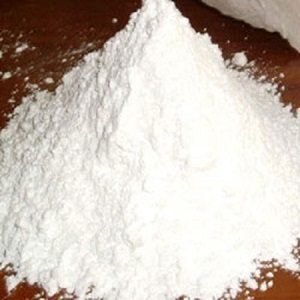The Versatile Use of Talc Power in the Plastic Industry
Introduction:
Talc is one of the oldest known minerals on earth and is composed mainly of magnesium silicate hydroxide. It is a versatile material that has a variety of commercial and industrial applications. One of the most common uses of Talc Powder for Plastic Industry. This useful mineral has been used to produce a variety of plastics throughout history and its popularity continues to grow. This article will provide an overview of talc, along with its various types and uses, particularly in the plastic industry.
Talc is a soft mineral that has excellent durability and strength. It is usually found in its powdery form, and it is composed of magnesium silicate hydroxide. The most common color of talc is white and it is often used to produce items such as paint, soap, paper, and rubber products. It is also highly used in the plastic industry due to its various benefits. Talc is often used in combination with other minerals in order to maximize its effectiveness.
Allied Minerals
Talc is one of a number of allied minerals that are commonly used as Talc Powder for Plastic Industry. Some of these minerals include calcite, mica, quartz, and kaolin clay. While talc is a versatile mineral with a variety of uses, many of these allied minerals can help to increase its usefulness in the plastic industry. Using a combination of these minerals can offer plastic manufacturers a more cost-effective and efficient production process.
Types of Talc
Talc is available in a variety of different forms, depending on its intended use. The most common type of talc is in powder form, which is used in the manufacture of plastics. It is also available in granular form and as pellets. Each of these different forms offers different advantages, depending on the application.
Uses of Talc in the Plastic Industry
The use of Talc Powder for Plastic Industry is incredibly versatile. Talc powder can be used as a filler material or as a lubricant, which can help to improve the production process. It can also be used to reduce the amount of plasticizers that are needed in order to soften the plastic. This can help to reduce overall production costs, as well as improve the performance of the plastic product. Talc can also be used as an anti-stick agent to facilitate the removal of plastic parts from molds.
Advantages of Talc for Plastic Manufacturers
Talc offers a number of advantages for plastic manufacturers. It is a cost-effective material that can help to reduce production costs and improve the performance of plastic products. Additionally, it is heat resistant and does not react with plasticizers. This makes it a viable choice for many different types of plastic production. The use of Talc Powder for Plastic Industry also helps to reduce wear and tear on the machinery, and it is also non-toxic and hypoallergenic, making it a safe option for use in the production process.
Conclusion
Talc is an incredibly versatile and useful material that has a variety of applications in the plastic industry. It is a cost-effective material that can help to improve the performance and reduce production costs. It also offers a number of advantages such as its heat resistant, hypoallergenic, and non-toxic properties. As a result, talc plays an important role in the production of various types of plastic products.



Comments
Post a Comment